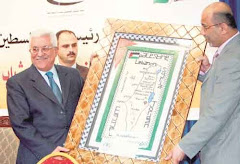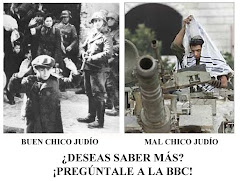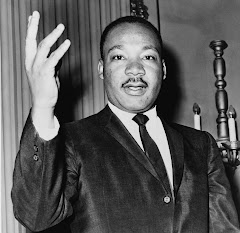www.unwatch.org
Goldstone Report Due This Week; Arab and Islamic States to Pursue Indictment of Israel by International Criminal Court
Geneva, Sept. 13, 2009 — An unprecedented team of fifty British and Canadian lawyers is challenging the refusal of a U.N. investigator to step down from an inquiry on the recent Gaza conflict, arguing that London School of Economics professor Christine Chinkin’s participation on the panel — after she declared Israel guilty prior to seeing any evidence — “necessarily compromises the integrity of this inquiry and its report.”
Arab and Islamic countries are hoping to use the report, due for release this week by a UN Human Rights Council inquiry headed by former South African judge Richard Goldstone, to indict Israel at the International Criminal Court, a move recently encouraged by UN rights chief Navi Pillay. However, Geneva diplomats say U.S. and Western states will likely block any such attempt.
In submissions filed separately from both countries, prominent attorneys from law firms and human rights organizations in Great Britain and Canada are challenging the U.N.’s rejection of a request that Chinkin be disqualified due to her January condemnation of Israel on the very disputed issues that the inquiry is meant to impartially examine.
In early May, UN Watch, a Geneva non-governmental organization that monitors the world body’s human rights system, appeared before the U.N. panel to urge Goldstone and the other members to disqualify Chinkin, invoking “the impartiality principle that Goldstone promised to uphold,” and “the due process requirements of morality, logic and international law.”
Despite the NGO’s additional filing of legal briefs in July and August, as reported by Agence France Presse and Deutsche Presse Agentur, the Goldstone mission took 3 months to respond, in the end summarily rejecting the petition without addressing its arguments. UN Watch’s appeal last week to the new president of the Human Rights Council, Belgian ambassador Alex Van Meeuwen, received no response. The team of 50 lawyers has now launched a direct appeal to Chinkin to demand that she step down.
In an August interview with South Africa’s Business Day, Goldstone admitted that “If it had been a judicial inquiry, that letter [Chinkin] signed would have been a ground for disqualification.”
Goldstone’s implied argument is that his international fact-finding mission is somehow exempt from the impartiality rule. Yet this contradicts his repeated promises that the hallmark of his inquiry -- unlike the one-sided nature of the original Human Rights Council mandate -- would be impartiality. It also defies logic, morality and established international law, as documented by the UN Watch legal brief.
At the same time, Goldstone’s tacit admission that his report is the product of something other than an impartial panel seriously calls into question the legal possibility of any court or prosecutor attributing evidentiary weight or credibility to their report.
Apart from Chinkin, the other three members of the panel -- Goldstone, Hina Jilani, and Col. Desmond Travers -- also implied Israeli guilt prior to their seeing any evidence, declaring in March that "The events in Gaza have shocked us to the core."
No one has ever disputed that the Arab-controlled Human Rights Council deliberately selected individuals who had made up their mind well in advance -- not only that Israel was guilty, but that a democratic state with an imperfect but respected legal system should be considered the same as, or worse than, a terrorist group.
Such moral equivalence regrettably underlies this week's blitz campaign by Human Rights Watch to demand that Western states support the Arab campaign to turn the Goldstone report into an ICC indictment of Israel.
"Both Israel and Hamas have poor records in conducting thorough and impartial investigations into alleged serious violations of the laws of war," said the group this week with a straight face, in an open letter to the European Union. The same bizarre equivalence also pervades Friday's op-ed by Human Rights Watch's Joe Stork.
The comparison is perverse in scale and in principle: killing civilians during battle is for Israel, the U.S., and other NATO allies an unintended tragedy of war that they seek to avoid; for Hamas, Hezbollah or Al Qaeda, it is a triumph that embodies their very raison d'etre and modus operandi. Blurring that distinction is moral blindness, mischief or malice.
And appeals which pretend that terrorist groups possess independent legal instiutions capable or willing to scrutinize "violations" by their gunmen -- violations that logically do not even exist for groups that consider all Western or Israeli civilians to be legitimate targets -- are simply nonsensical.
During a week when we remember the deliberate murder of 3,000 innocents by a terrorist group on September 11, 2001, the world is entitled to expect better from the United Nations and other organizations that act under the banner of human rights.
El apaciguamiento de Occidente
Hace 10 años



















